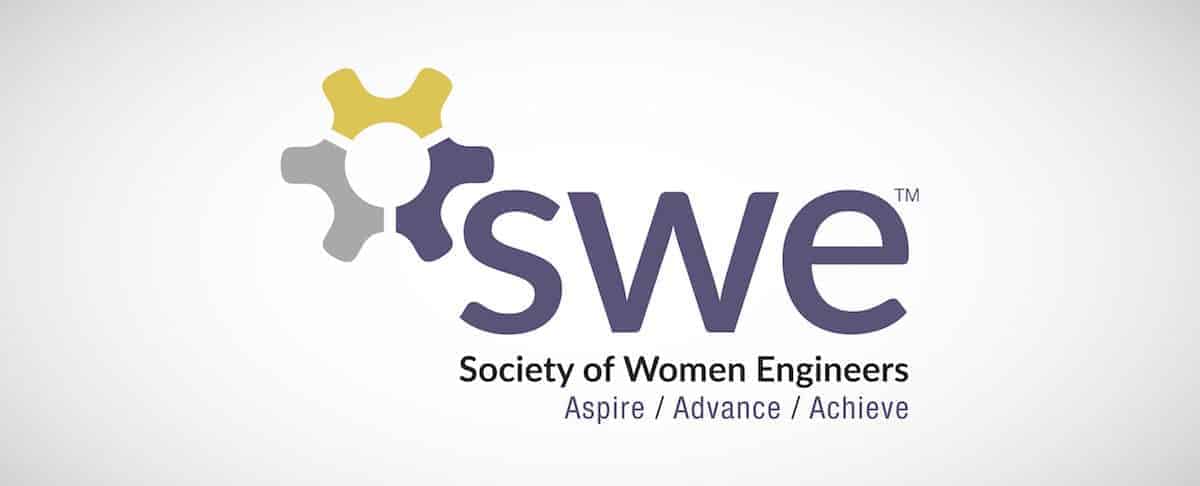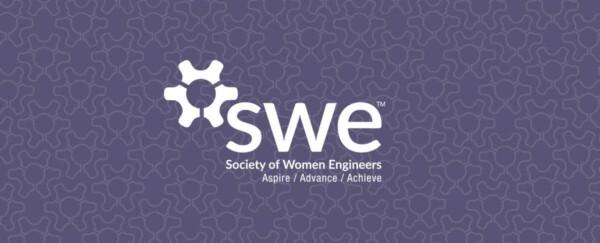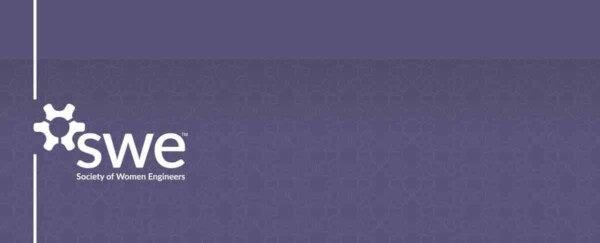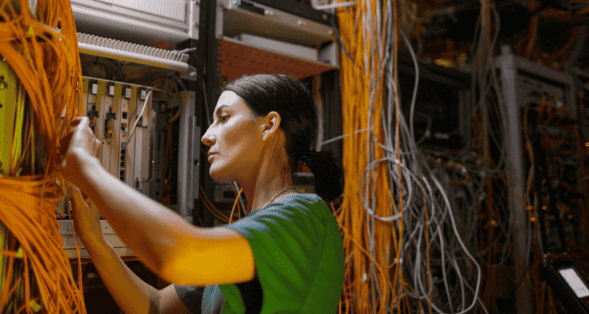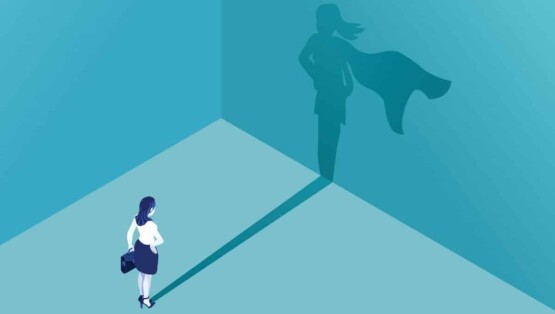Name: Emily Frantz
Current Engineering Discipline: Nuclear Engineering
Current Title, Company: Nuclear Engineer with Newport News Shipbuilding
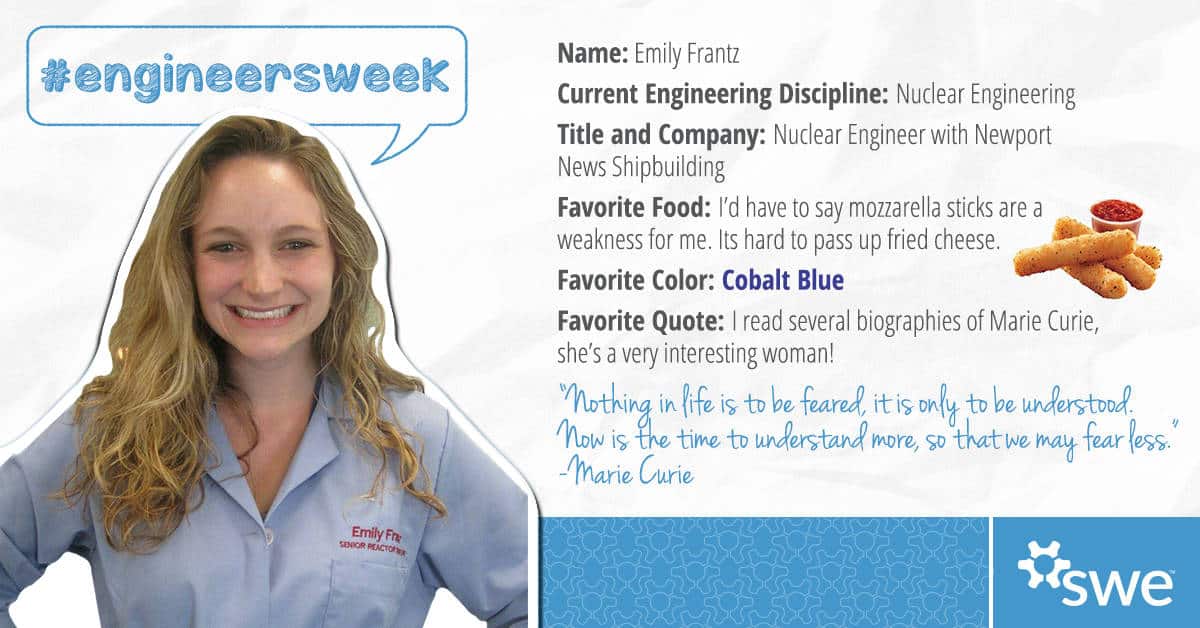
HQ: How long have you been a SWE member?
EF: 4.5 years! I joined my first year of college
HQ: What prompted you to join SWE?
EF: I saw them as the type of woman that I wanted to be. SWE Members were friendly, brilliant, passionate about their work as an engineer and with SWE and very accomplished! After speaking with certain SWE members about the incredible research and work they did, I found a group of women I related to, and found mentors and role models.
HQ: What is your favorite SWE resource? Networking, conferences, etc. – and why?
EF: Networking! It is a small world; you meet women at conferences then see them every year when you return. Many of the women I met in Houston, Baltimore, and LA, actually moved to work in my region! A conference is the quickest way to grow your network. After graduating college, it is tough to meet people outside of work. Using my SWE network, I’ve met other young professionals in the area which has also helped with the transition from collegiate student to young, thriving professional.
HQ: How has SWE helped to shape your career?
EF: SWE has shaped my career by introducing me to women that encourage me as well as shown me the many paths my career could take. Most of what I’ve learned about being a good engineer, I have learned through SWE. I’ve gained experience in leadership, public speaking, how to communicate with different generations, digital communications, working with a diverse group, and more! These are skills that I use every day.
HQ: What first sparked your interest in engineering?
EF: My father is an engineer and helping him around the house was a huge influence. He described how the plumbing worked, how different circuits worked, and how to build things in the garage. He also bought toys he liked and would play with me. My favorite was a K’Nex set where you could build a robotic dragon, car, or dog. Growing up board games taught me the problem solving and strategy, Legos were more technical and great to build automobiles, houses, and more for my other toys. I was also lucky enough to be a part of different programs geared toward engineering, whether it was directly or indirectly. Girl Scouts (our HQ Outreach partner!) played a big part in it.
HQ: What prompted you to go into the field of engineering that you did?
EF: The short answer? My goal has always been to become an engineer who would solve the energy crisis. As I learned about different sources of energy, I became increasingly interested in nuclear interactions and the clean energy created as a result. I look forward to a career in an industry I truly believe in and am still as excited about as when I first learned the power of the atom. The Long Answer? There has never been doubt in my mind that I wanted to be an engineer who helped solve the energy crisis. In high school I watched a huge megawatt turbine be installed on school grounds from my classroom window. As I watched in awe of the progress of the installation, I thought that was what I wanted to do! The summer before my senior year in high school, I called Rhode Island Wind Power, a small scale wind turbine installation company, and asked if I could come assist in different projects. The owner took me on as an unpaid intern and over the course of a year, I observed from start-to-finish what it took to work with customers, and what it took to install a Windspire vertical axis turbine on the Newport Naval Base. While that was an incredible experience, I found what I was learning inside the classroom even more intriguing:
I was learning in AP Chemistry how nuclear power worked. I can recall asking my teacher what it took to have a career path in nuclear, and she encouraged me wholeheartedly to pursue it (Go her!) And, after that, I fell in love with nuclear interactions and the clean energy it creates. Since my first introduction to this new nuclear world, I’ve had the opportunity to work in various aspects of the industry. At Rhode Island Nuclear Science Center, I interned in radioactive waste management, health physics, and operations. Additionally, I obtained my Senior Reactor Operators license at the Reactor Critical Facility in Schenectady, NY.
I look forward to a career in an industry I truly believe in and am still as excited about as I was when I first learned the power of the atom.
HQ: What are some challenges and triumphs you’ve experienced, faced and overcome as female engineer?
EF: Overall as a female engineer, I have been lucky to have a positive experience. I have peers who did not have a support system like SWE or were not been lucky enough to work with great people.
One negative experience sticks out in my mind: I was networking at a cocktail hour as part of a conference. I didn’t know anyone and tried to introduce myself to a group where some of the older men at the table dismissed me and ignored me as I tried to join the conversation. As I walked away, I heard them refer to me as “Barbie” (I was very blonde at the time and wore a pink blouse that evening). It hasn’t stopped me from wearing the business casual clothes that show my personality or hindered my attempts to meet others in the industry.
I also noticed a phenomenon Sheryl Sandberg mentioned in her book “Lean In”, where women will not sit at the table and be a part of the conversation. It’s funny to see at meetings how true that is, I was at a meeting with some of my female coworkers who didn’t want to sit at the table with me. They said they were just observing, they wouldn’t have any input, etc.
HQ: How do you personally advocate for women engineers?
EF: Speaking up when I hear small things at the office, starting conversations with my coworkers about diversity and inclusion, inviting others to accompany me to SWE events, and staying involved with SWE and Women in Nuclear. Not everyone is comfortable calling people out on their misconceptions of diversity and inclusion or speaking up when something is said that shouldn’t be, but it is easy to invite others to attend a meeting where inclusion is the focus.
HQ: What is your current and/or previous roles and responsibilities with SWE?
EF:
1. Membership Co-Director (FY16): The Membership Co-Director handles all tasks and sponsors programs associated with the goals of member recruitment, retention, and services. These activities include membership administration, membership metrics (ie, surveys), and preparing packets for new and potential members.
2. Collegiate Interest Group Coordinator (FY16): I work with the Adirondack Community College CIG in an advisory role.
3. Region F Collegiate Representative (FY15): My responsibilities as RCR were to keep in touch with 15 of the 30 collegiate sections in Region F. This was by far my favorite role! My communications entailed emailing them updates from the society/region, reviewing reports of what they had accomplished, and offering suggestions for improvement within the sections. Sections looked to me for advice on how to boost membership, how to fill out certain paperwork, find proper advisers, the right set of professional mentors, and more.
Along with: SWE Future Leader (FY14), RPI SWE President (Fall 2014 – Spring 2015), RPI SWE Vice President (Fall 2013 – Spring 2014), RPI SWE Conference Committee Co-Chair (Fall 2013 – Spring 2014), RPI SWE Communications Director (Fall 2012 – Spring 2013), RPI SWE Freshman Representative (Fall 2011 – Spring 2012).
HQ: What are you most excited about for 2016 as an engineer?
EF: I’m excited to see more positive promotion of nuclear! A few years ago the film, “Pandora’s Promise”, came out and started discussion on the benefits of nuclear power and addressed some misconceptions. There are some power plants being shut down, but there is also new construction going on. As far as I know, Southern Company’s Vogel 3 and 4 are expected to be complete in 2019 and 2020. I look forward to more companies and professional groups reaching out to their communities to alleviate fear and answer the public’s questions about nuclear energy.
HQ: What are you most looking forward to at WE16?
EF: Getting to see all of my SWisters! I’m also looking forward to seeing conference from the professional perspective.
HQ: If you could give yourself one piece of advice to yourself when you first started your career, what would it be?
EF: I would have told myself, “you are not an impostor”. You were hired for a reason. These people are your peers and willing to help. Don’t be afraid to ask questions. College teaches you how to think and all you’re expected to know is how to learn. You will be trained on the job.
Author
-

SWE Blog provides up-to-date information and news about the Society and how our members are making a difference every day. You’ll find stories about SWE members, engineering, technology, and other STEM-related topics.

